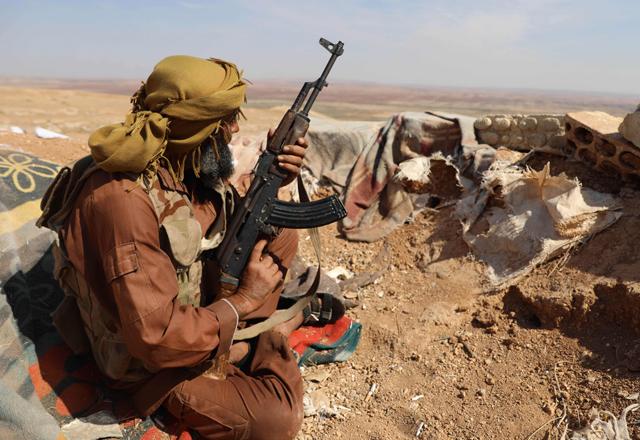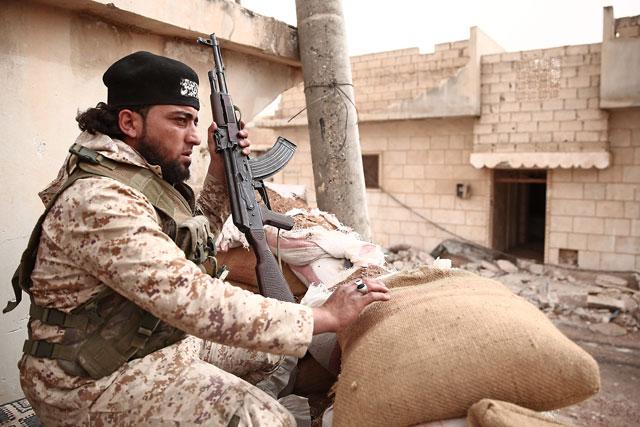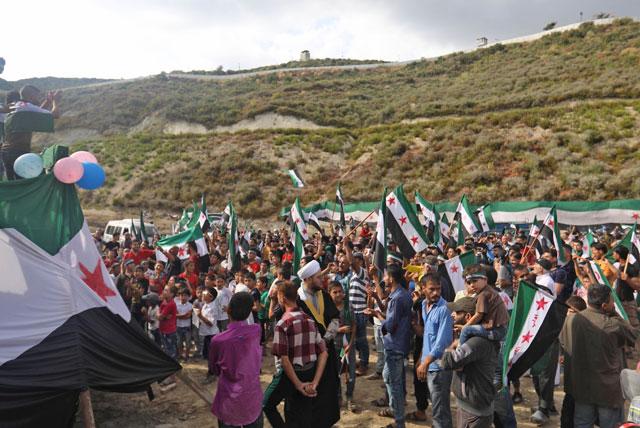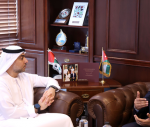You are here
Pro-Turkey rebels in north Syria ‘begin withdrawing’ — monitor
By AFP - Oct 01,2018 - Last updated at Oct 01,2018
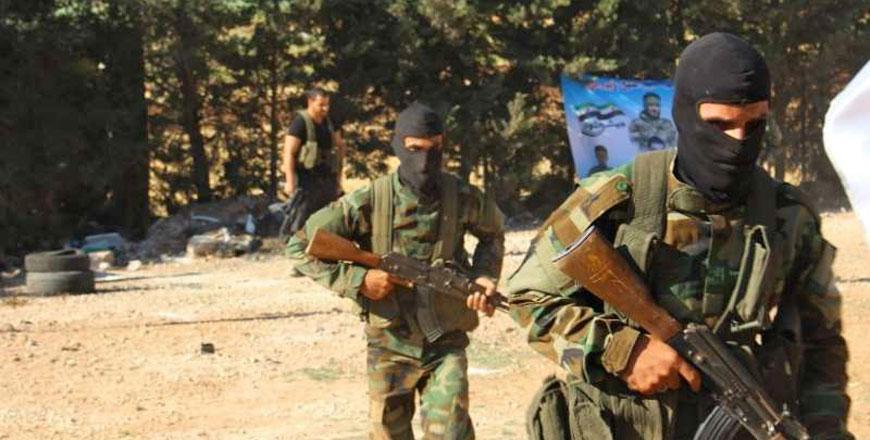
Syrian rebels in northern Syria are seen during a training in this undated photo (Photo courtesy of Idlib EMC Facebook page)
BEIRUT — Conflicting statements were made on Sunday regarding the withdrawal of Pro-Ankara rebels in northern Syria, as one monitor body confirmed that the Turkey-affiliated rebel forces have begun to pullout from the region under the Russian-Turkish deal, a rebel coalition has denied.
The Syrian Observatory for Human Rights said the Faylaq Al Sham rebel group has began its withdrawal from parts of the neighbouring province of Aleppo on Sunday “with heavy weapons, including tanks and cannons”.
Meanwhile, the National Liberation Front, (NLF) a pro-Turkey rebel alliance, though welcomed the deal, said on Sunday it had not yet moved any heavy arms from the planned zone.
“There have been no withdrawals of heavy weapons from any area or any front. This report is denied, completely denied,” NLF spokesman Naji Mustafa told AFP.
The deal between Moscow and Ankara provides for a buffer zone around the northern region of Idlib that would be free of militants and heavy weapons.
Sunday’s reported pullout of fighters and their heavy arms from areas near Idlib is the first indication that the landmark deal is being implemented.
Faylaq Al Sham has some 8,500 to 10,000 fighters who are part of a Turkish-backed alliance known as the National Liberation Front (NLF).
The NLF, according to Abdel Rahman, is “the second most powerful group in northern Syria in terms of military equipment and the third largest in terms of manpower”.
It cautiously accepted the Idlib agreement just over a week ago, pledging “full cooperation” with Turkey.
On September 17, Russian President Vladimir Putin and Turkish counterpart Recep Tayyip Erdogan agreed to set up a demilitarised zone about 15 to 20 kilometres wide ringing around Idlib.
All factions in the planned buffer must hand over their heavy weapons by October 10, and radical groups must withdraw by October 15, according to the agreement.
The deal was welcomed by world powers, aid organisations, and the United Nations, which all hoped it would help avoid a bloody military assault on the area.
But observers have pointed out its implementation would be tricky for Ankara.
Most of the territory where the zone would be established is controlled by either hardline extremists or by Hayat Tahrir Al Sham, which is led by former members of Al Qaeda’s Syria branch and widely considered the most powerful force in Idlib.
The rest is held by the NLF and other rebels.
HTS has yet to announce its position on the agreement, and there have been no signs it was moving out either fighters or heavy weapons.
But Al Qaeda loyalists Hurras Al Deen, which have a presence in the zone, rejected the deal last week.
And on Saturday, formerly US-backed rebel group Jaish Al Izza followed suit.
“We are against this deal, which eats into liberated [rebel-held] areas and bails out Bashar Assad,” its head Jamil Al Saleh told AFP.
Jaish Al Izza, which is not part of the NLF, clashed with regime forces throughout the night on Saturday and into Sunday in the province of Hama, bordering Idlib.
Separate clashes were also taking place in the coastal province of Latakia between extremists and government fighters, said the observatory on Sunday.
Idlib and adjacent rebel territory are home to some 3 million people, about half of them displaced from other parts of Syria.
Seven years of brutal war have forced more than half of Syria’s people out of their homes, sending more than 5 million into neighbouring countries to seek refuge and leaving another 6 million internally displaced.
After losing swathes of territory to rebel fighters, Syrian President Bashar Assad appears to have regained the upper hand and now controls around two-thirds of the country.
The areas still escaping his control are Idlib in the northwest, and a northeastern chunk held by Kurdish authorities where US and other Western troops are present.
On Saturday, Syrian Foreign Minister Walid Muallem addressed the United Nations General Assembly in New York, saying Damascus would keep “fighting this sacred battle until we purge all Syrian territories” of both terror groups and “any illegal foreign presence”.
Related Articles
AL EIS, Syria — The withdrawal by rebels of their heavy weapons from a planned buffer zone in north-western Syria is due to last several day
AL EIS, Syria — The young dust-covered rebel looked out warily from a dirt trench facing opposing regime forces as his unit pulled heavy wea
BEIRUT — Syrian rebels said Saturday they have begun withdrawing heavy arms from a planned buffer zone in north-western Idlib province, ahea


